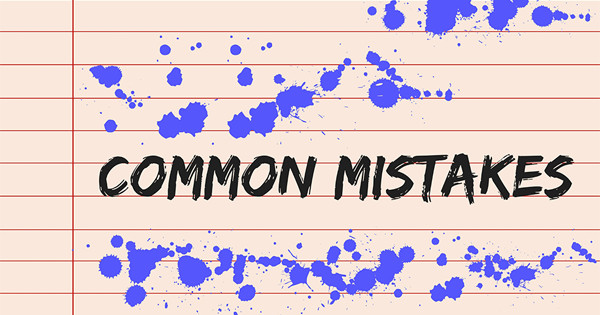11 End-of-life Planning Mistakes To Avoid
In a perfect world, your end of end-of-life plan will account for everything. Every “i” dotted and every “t” crossed. In reality though, mistakes happen, and it’s often the small stuff that causes the most problems. And these mistakes can wreak havoc on your loved ones! So we’ve compiled a list of the most common and not-so-common pitfalls to avoid.

- Failing to update your Will or Trust. Every life event – yours or one of your beneficiaries (marriage, divorce, birth of a child, death, etc.), should prompt you to review your plan. All too often ex-spouses are left monies that were intended for other family members.
- Forgetting about beneficiary designations. Insurance Companies are required to pay benefits to the most recent beneficiary listed on file. So make sure to review your group life insurance, individual policies and retirement accounts. Your Will does NOT trump these designations, so make sure to keep them updated!
- Ignoring children’s ages, or special needs. Insurance companies cannot pay monies to minor children. So make sure to name a legal guardian to handle monies designed for the children’s benefit. Also, if you have a child with special needs, it may be in their best interest for you to set up a trust. This allows you to decide who will care for them. It also allows you to set aside monies for their future.
- Leaving a trust unfunded (or underfunded). A living trust, which allows you to pass monies or assets to heirs (without going through probate), can be a valuable estate-planning tool. But it won’t do you a bit of good if you fail to put assets (usually life insurance, bank accounts etc.) into the trust. Once you’ve set up a trust, you must re-title any of these accounts with the name of the Trust.
- Selecting the wrong executors and trustees. Your plan is only as good as the people who carry it out. Probate or Trust administration isn’t for everyone. Some people lack the interest, the time, or the understanding it requires. Others may not take the responsibility seriously or understand the potential liability involved.
- Failing to consider what will happen if you and your partner aren’t legally married. If you live together and you are not married, you should consider the legal effects surrounding end of life rights and after death taxes.
- Believing your estate is too small. End-of-life planning doesn’t depend on how much you have. It’s about how you handle what you do have.
- Forgetting about your furry (or not so furry) friends. Take the time to spell out who will be responsible for your pets should something happen to you. Pet trusts can help you set aside money to aid in their care after you’re gone.
- Neglecting your digital assets. Remember that your property isn’t confined to what you physically own. You’ve got a whole online life to think about too.
- Lack of communication. You may not want to reveal who will get what prior to your death. But, if you want your heirs to have an understanding of the purpose or intentions of your plan, there are things you can do. One way is to write a letter to be presented after your death. You may want to create a detailed list of who will receive what. This may help reduce family tensions or arguments.
- Procrastinating. Unfortunately, the saying “better late than never” doesn’t apply to end of life planning. Which makes procrastination the worst mistake you can make! At the very least, think about what your family needs to know. This will help reduce the stress they’ll experience after you’re gone.
Talking about death and dying isn’t something that comes naturally to most families. But communicating your plans could prevent huge, unintended mistakes. So save your loved ones a little stress, frustration and anxiety by providing some direction, when they will need it most.